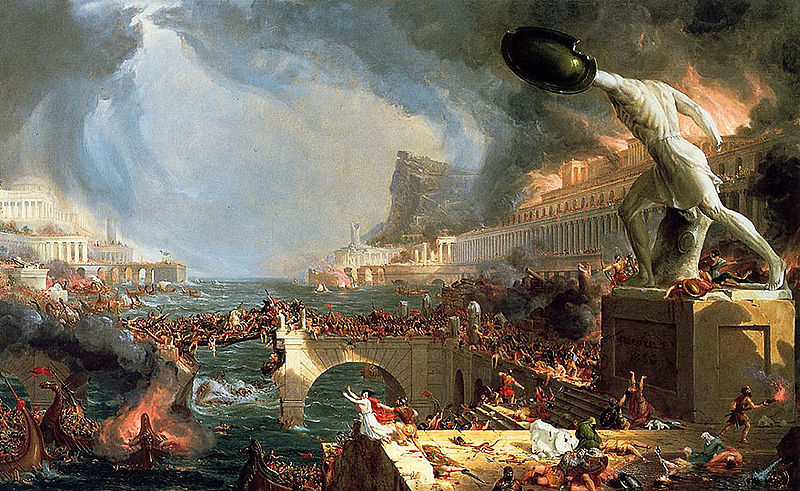
The Course of Empire by Thomas Cole
Rarely spoken of is the effects of the Middle Eastern wars on Ukraine. For a long time, Ukraine got everything it wanted, but since Oct 7th, it has been #2, or worse, on America’s priority list. Mossad has a great deal of influence in America, just short of control, almost certainly due to a sickening collection of videos and pictures, and Israel has received the first cut off everything it needed: most especially of interceptor missiles.
Even so, the reason that Israel and the US called for a ceasefire and Iran did not (though it accepted one) is that Israel was less than a week from running out of air defense missiles, and as best I can tell, the US could only have supplied about another 7-10 days worth.
What this means for Ukraine is simple enough, they’re being absolutely hammered by Russian missiles and bombs. They don’t have enough air defense, they don’t have enough missiles for the air defense, and there is no reasonable prospect of re-stocking. The West’s larder is empty.
The tempo of Russia advances continues to increase. It’s still slow, but it’s at least eight times as fast as it was a year ago, and as Ukraine runs out of men, weapons and ammunition (Western shortages go far beyond air defense), plus as morale continues to plummet in Ukrainian armed forces, the prospect of “big arrow” warfare grows closer.
As I’ve said before I expect that period will arrive next year. The fighting age male population is decimated, those willing to fight are or will be mostly dead, and Russia will win the war decisively, taking whatever they want to. The only danger of this not happening is Putin accepting a peace offer before that: like Khameini, he is very cautious, doesn’t like war and wants it over. If Zelensky ever gets his head on straight, or is replaced, he’s likely to accept a peace deal much short of what can be accomplished by arms and an unconditional surrender.
This will be a HUGE loss for the West. The first war they have decisively lost on the battlefield in generations. There will be no concealing it, and the inability to ramp up production of weapon systems and munitions will leave the collective West so weak that no one will be able to believe they could win a conventional war against China, or even Russia.
It will, psychologically, be the end of Western hegemony. For almost 400 years the West has been dominant, and since Industrial Revolution, overwhelmingly dominant.
That era is almost over. The economic aftershocks will be huge: the end of American dollar hegemony is likely within five years, ten at the most and the entire world except, perhaps, Canada, the US and Europe, will re-orient to China. The US will even lose South Korea and Japan as reliable allies, indeed, it arguably already has (more on that another time.)
This is a literal epochal period. The “nothing ever happens” fools are missing that this is the end of a literal era: the era of European supremacy (the US is just a European settler state and Britain’s successor.)
The new era will be multipolar only if China wants it to be. They are approaching “America after WWII” levels of industrial and technological power. However, for at time, they will probably allow a multipolar world, as they are smart enough not to want to be a superpower or “world cop.”
Normally this would cycle to a superpower period, but environmental issues are likely to short-circuit normal macro-geopolitical cycles. Everyone will wind up in survival mode, and the question will be who manages this best. Whoever does will lead the next cycle, which will occur long after most or all of us are dead.
So, as best you can, you may as well be interested. You are living in truly interesting times, which come around only every half millenia or so.
If you’ve read this far, and you read a lot of my articles, you might wish to donate or subscribe. I’ve written over 3,500 posts, and the site, and Ian, take money to run.


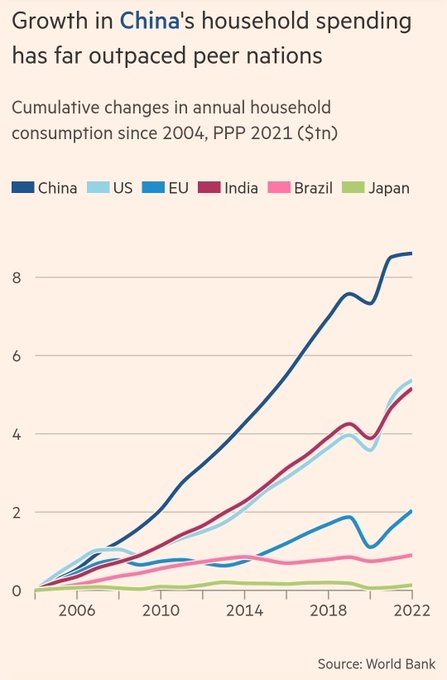




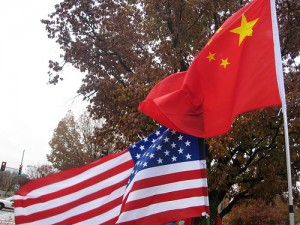
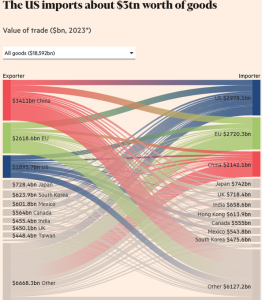 Well, maybe. Who the hell knows what he’ll do. Anyway, tariffs are back to 30% on China and 10% on America.
Well, maybe. Who the hell knows what he’ll do. Anyway, tariffs are back to 30% on China and 10% on America.
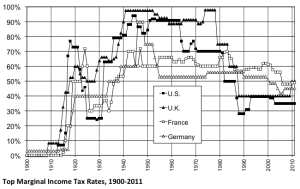
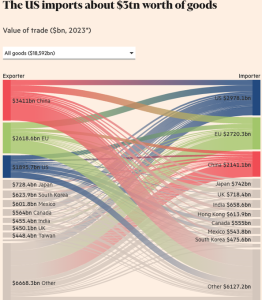 The final part of the economy is what you can get from other nations. Call this the external economy. Does someone else make it, will they sell it to you, can you afford it? Most of the time countries won’t sell other countries nukes, for example, and for much of history countries tried not to sell other countries the knowledge required to make advanced techs. When they didn’t prevent this, they paid big time: Britain was de-facto subjugated by America and America is now losing its Empire.
The final part of the economy is what you can get from other nations. Call this the external economy. Does someone else make it, will they sell it to you, can you afford it? Most of the time countries won’t sell other countries nukes, for example, and for much of history countries tried not to sell other countries the knowledge required to make advanced techs. When they didn’t prevent this, they paid big time: Britain was de-facto subjugated by America and America is now losing its Empire.